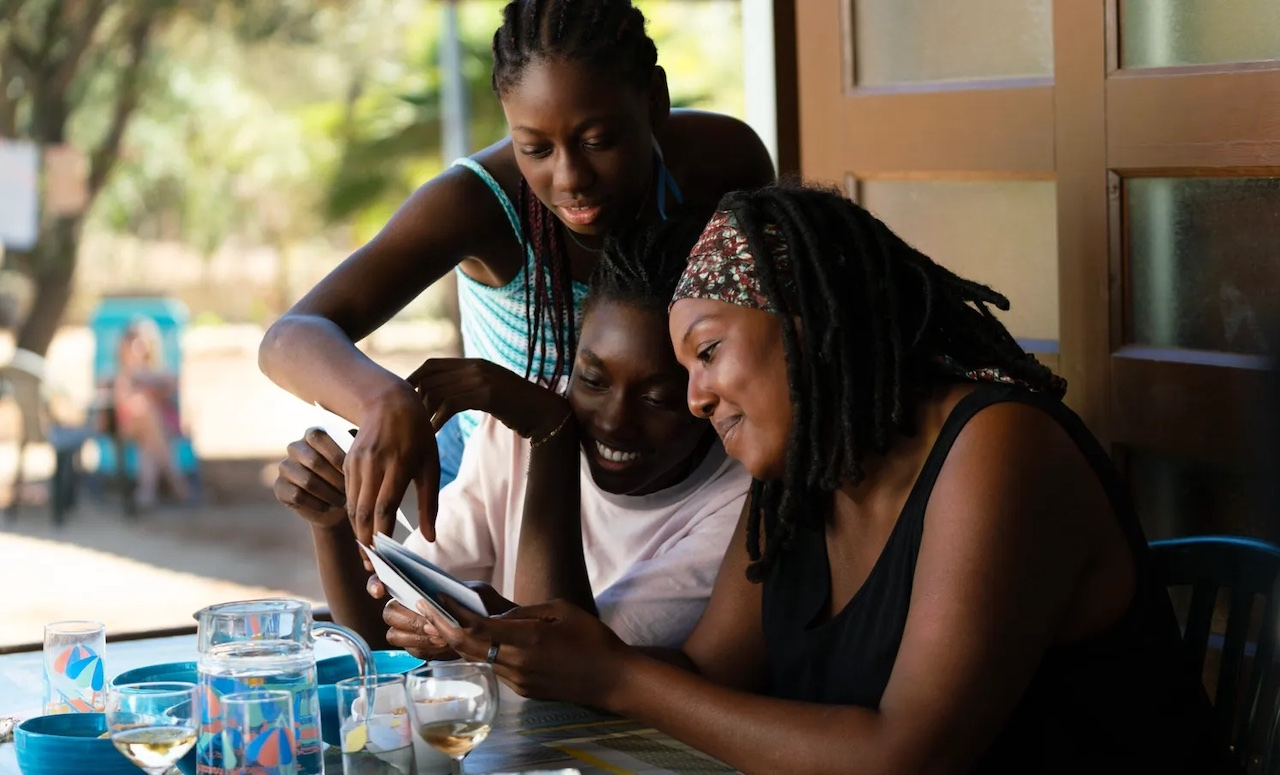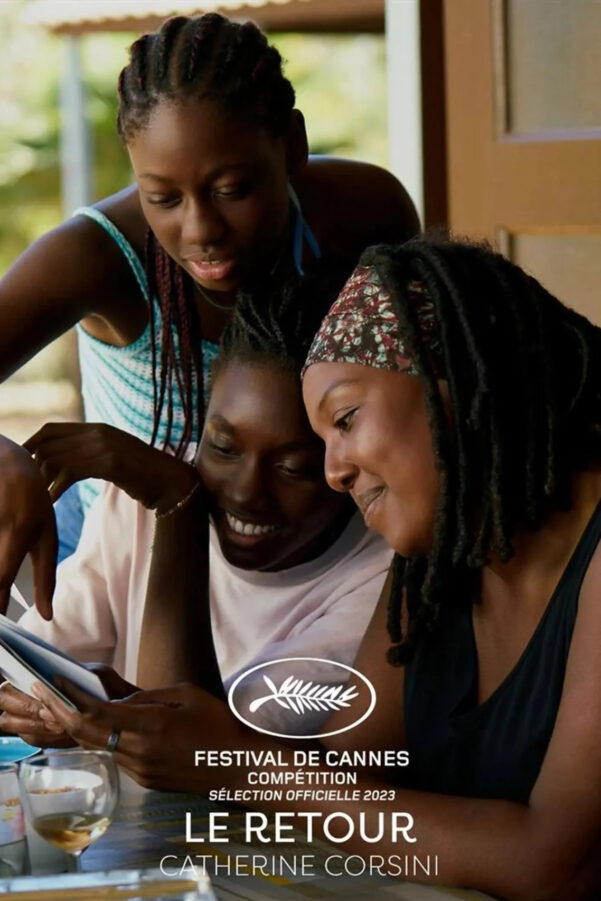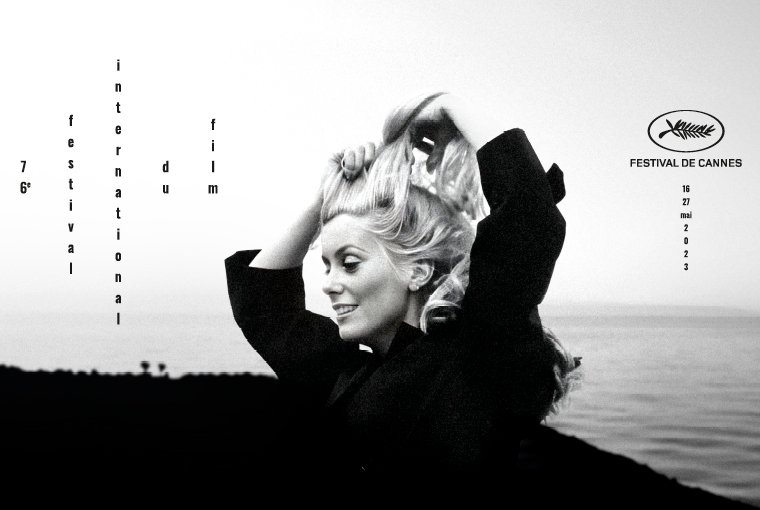Homecoming (Le Retour)

Along with the invitation afforded to Johnny Depp to open the 76th Cannes Film Festival, the storm of allegations of inappropriate behaviour (accusations she denies) and the action of withdrawn funding that has engulfed the build up to Catherine Corsini’s latest festival outing has threatened to leave a sour tang. For many, the two cases cumulatively support the position of those who believe that Cannes, along with the rest of the global industry that is cinema, is failing to keep pace with the recent – and long-overdue – raising of the bar where standards of professionalism are concerned. As for the film itself, Corsini’s portrayal of a family reckoning with their past is a rather tender, deeply personal affair, if a touch mechanically predictable.
The film opens with what feels like a sombre, downbeat escape scene: Khédidja (Aïssatou Diallo Sagna) and her children, Jessica and Farah, are leaving their home on the island of Corsica, before receiving news that reduces the mother to utter distress. Fast-forward some years, and the trio are returning after Khédidja is offered work caring for the children of Sylvia and Marc (Virginie Ledoyen and Denis Podalydès, respectively), a wealthy metropolitan couple holidaying on the Island.
Jessica and Farah (Suzy Bemba and Esther Gohourou, playing the children as teenagers) have a close relationship, but not one without a simmering tension underpinning it. Jessica, having just received a scholarship in science, is viewed by Farah through the lens of the forgotten sister, playing second fiddle to the love and attention shown to her by their mother as a result of her maturity and academic prowess. Farah’s suspicions are bolstered by a feeling of otherness afforded to her by way of her name, a stark contrast to the acceptably Western ring of her sister’s.
There is a sense that the enigmatic, preoccupied persona of their mother is harbouring secrets from their family’s past, particularly of their white father, who died when they were young. The race of their late Father is something that contributes to the cracked seams and duality of their existence as a family; they feel a deep connection to the island from which they are estranged, yet sense a hostility emanating from it and its people that is often overt, but sometimes nestling in the subtext of their interactions with the islanders.
Le Retour is, for the most part, a subdued, gentle affair, weaving in breezy, picturesque elegance a meditation on loss, identity, parenthood and sisterhood amidst Corsini’s reckoning with her own scattered childhood memories of Corsica. The latter of these themes is arguably the heart of the film. Khédidja describes her late husband at one point as a “ghost” that she “sees everywhere”, and the presence of his absence informs the dynamics between her and her daughters. Exploiting the intrinsic nature of memory in the scaffolding of cinema, Corsini’s take on these themes is thought-provoking and occasionally profound. Nothing that unfolds is particularly surprising, and the film’s plot beats announce the path to its conclusion long before it arrives, but Le Retour is clearly a work of personal catharsis on Corsini’s part, and one that translates with a graceful delicacy to the screen.
Matthew McMillan
Homecoming (Le Retour) does not have a UK release date yet.
Read more reviews from our Cannes Film Festival 2023 coverage here.
For further information about the event visit the Cannes Film Festival website here.
Watch a clip from Homecoming (Le Retour) here:



























Facebook
Twitter
Instagram
YouTube
RSS